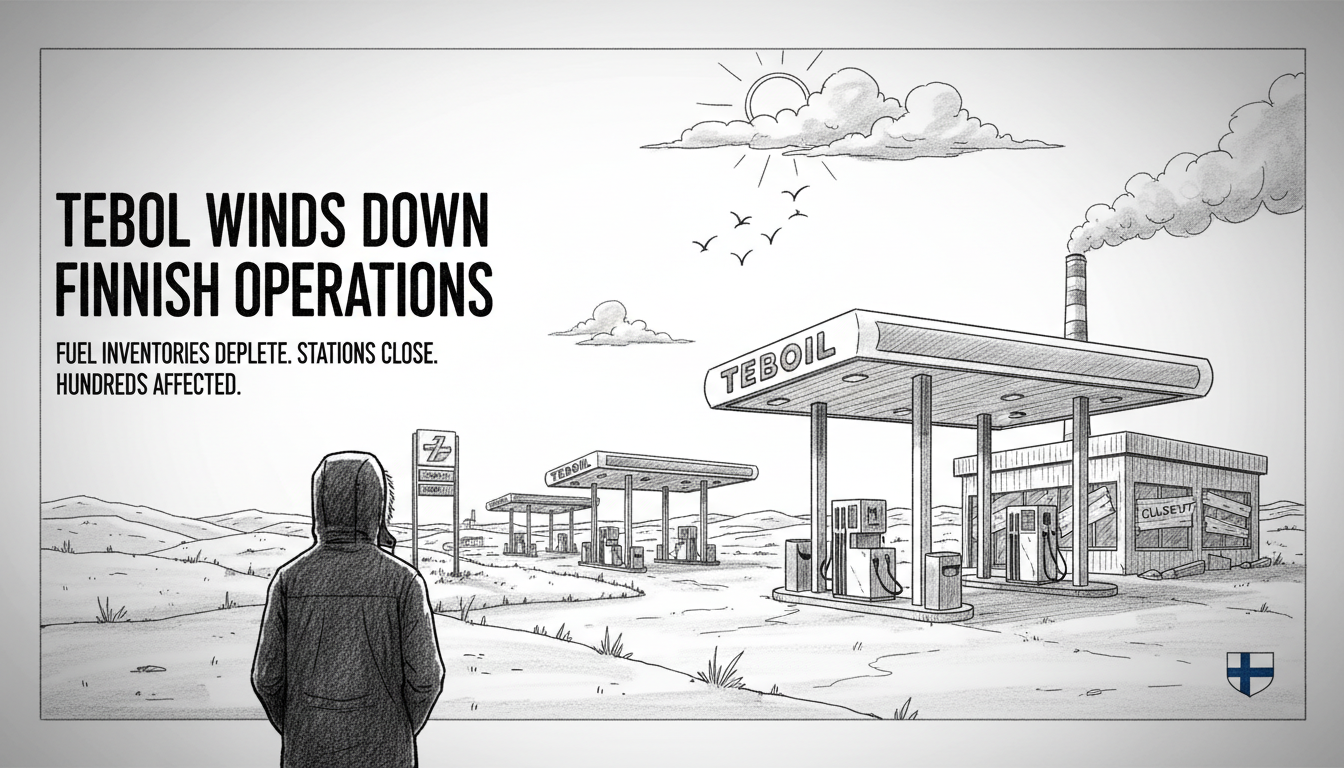Finnish fuel company Teboil has confirmed it will gradually wind down its operations across Finland. The company made the announcement on Wednesday morning, revealing plans to phase out its service stations as existing fuel supplies are depleted. This marks a significant development in Finland's retail fuel sector, which has seen consolidation in recent years.
Teboil's decision means customers will see stations closing systematically as inventories run out. The company operates approximately 270 service stations throughout Finland, employing hundreds of workers. These locations provide not just fuel but also convenience store services and car washes in many cases.
The Finnish fuel market has undergone substantial changes in the past decade. International players have increased their presence while domestic companies face competitive pressures. Teboil, owned by Russian energy giant Lukoil, has faced particular challenges following international sanctions related to the Ukraine conflict. Many Finnish consumers have shown reluctance to patronize Russian-affiliated businesses since 2022.
What does this mean for Finnish motorists? The closure will reduce competition in some areas, potentially affecting fuel prices. Customers who regularly visit Teboil stations will need to find alternative providers for their fuel and convenience needs. Station employees face uncertain futures as the wind-down progresses.
Finland's fuel retail sector remains tightly regulated with strict environmental and safety requirements. The country has been pushing toward greener transportation solutions, including electric vehicle infrastructure and biofuels. This broader transition may have contributed to Teboil's strategic reassessment.
The company's departure creates opportunities for competitors to acquire prime locations. Other Nordic fuel retailers like St1 and Circle K likely see potential in expanding their Finnish networks. International companies may also view this as an entry point into the Nordic fuel market.
For international observers, this development highlights the interconnected nature of European energy markets. Geopolitical factors increasingly influence commercial decisions, even in traditionally stable Nordic economies. The case demonstrates how global tensions can directly impact everyday consumer services in countries like Finland.
What happens to Teboil's existing infrastructure? The company will need to manage environmental remediation at closed stations. Finnish regulations require proper decommissioning of fuel storage tanks and contamination assessment. This process typically takes months to complete properly.
The timeline for complete closure remains uncertain. The company indicated it will proceed gradually as inventories sell through. Some stations may operate for weeks while others could close sooner depending on local fuel demand and existing stock levels.

